A collapse in U.S. stock prices certainly would cause a lot of white knuckles on Wall Street. But what effect would it have on the broader U.S. economy? If Wall Street crashes, does Main Street follow? Not necessarily.
BEN BERNANKEInvestment banks manage to go bankrupt through their investment-banking activities, commercial banks manage to go bankrupt through their commercial-banking activities.
More Ben Bernanke Quotes
-





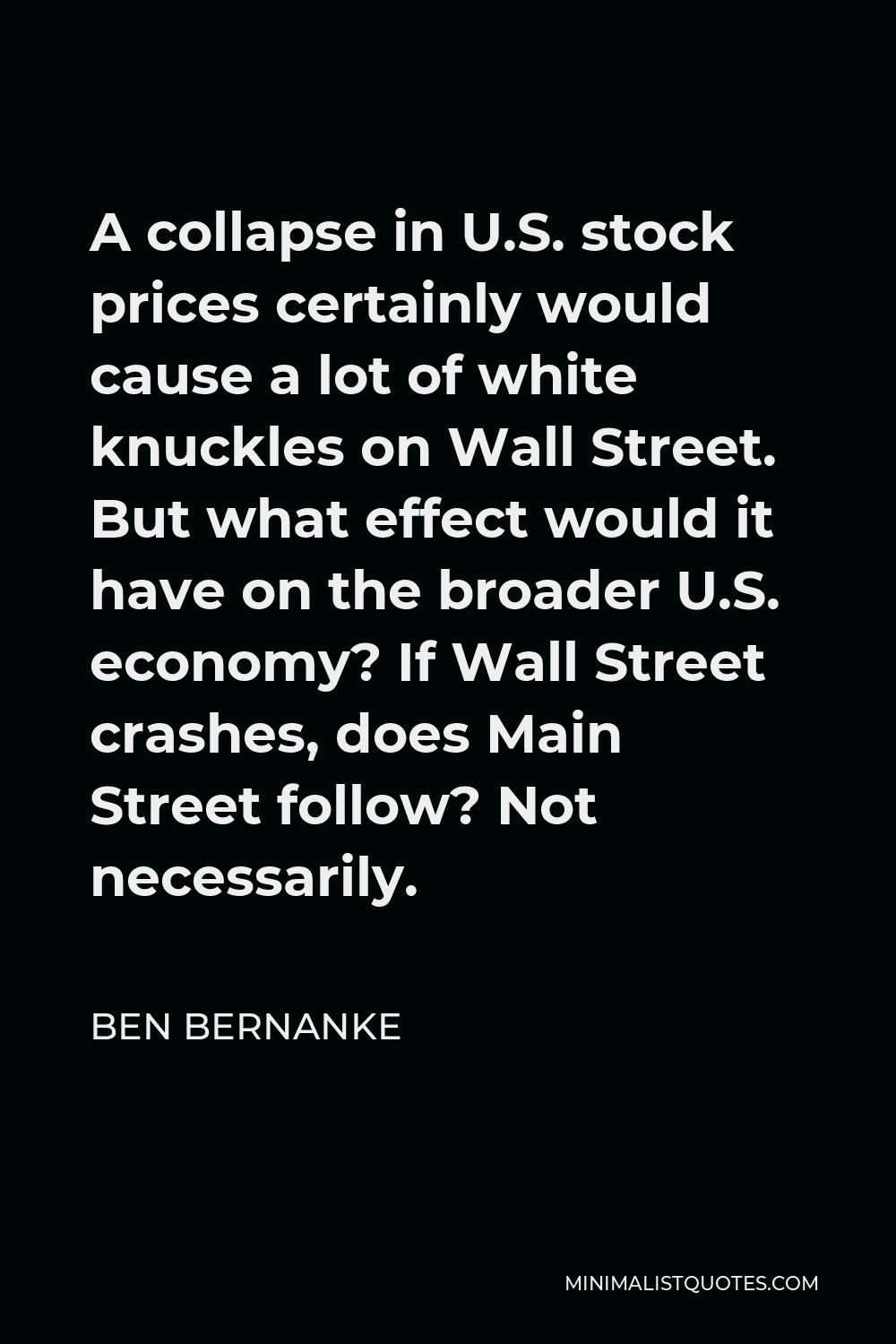
-





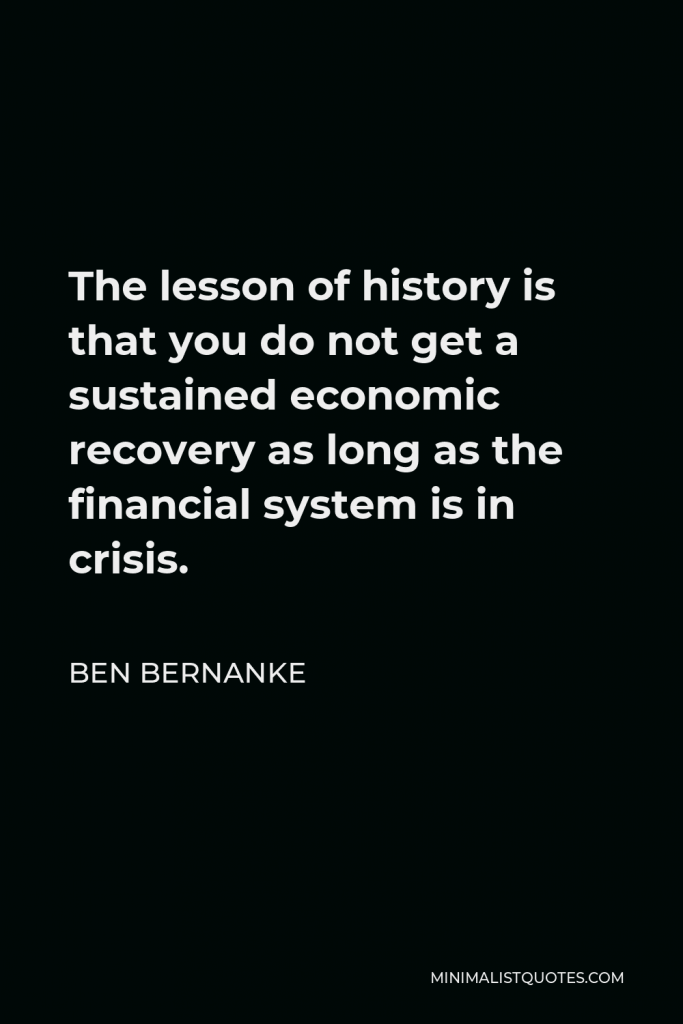

The lesson of history is that you do not get a sustained economic recovery as long as the financial system is in crisis.
BEN BERNANKE -







The GSEs are adequately capitalized. They are in no danger of failing.
BEN BERNANKE -







A money-financed tax cut is essentially equivalent to Milton Friedman’s famous ‘helicopter drop’ of money.
BEN BERNANKE -







I am confident that we will meet whatever challenges the future may bring.
BEN BERNANKE -







Speaking as somebody who has been happily married for 35 years, I can’t imagine any choice more consequential for a lifelong journey than the choice of a traveling companion.
BEN BERNANKE -







If your uniform isn’t dirty, you haven’t been in the game.
BEN BERNANKE -







I am very proud of my nerd-dom.
BEN BERNANKE -






In fact, the world needs more nerds.
BEN BERNANKE -





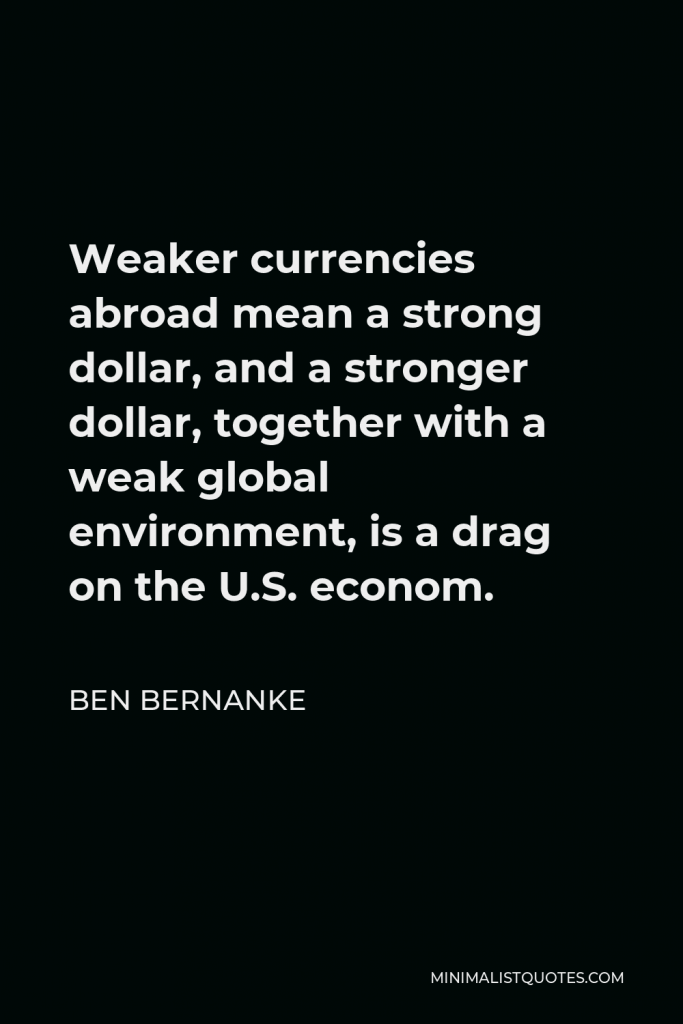

Weaker currencies abroad mean a strong dollar, and a stronger dollar, together with a weak global environment, is a drag on the U.S. econom.
BEN BERNANKE -





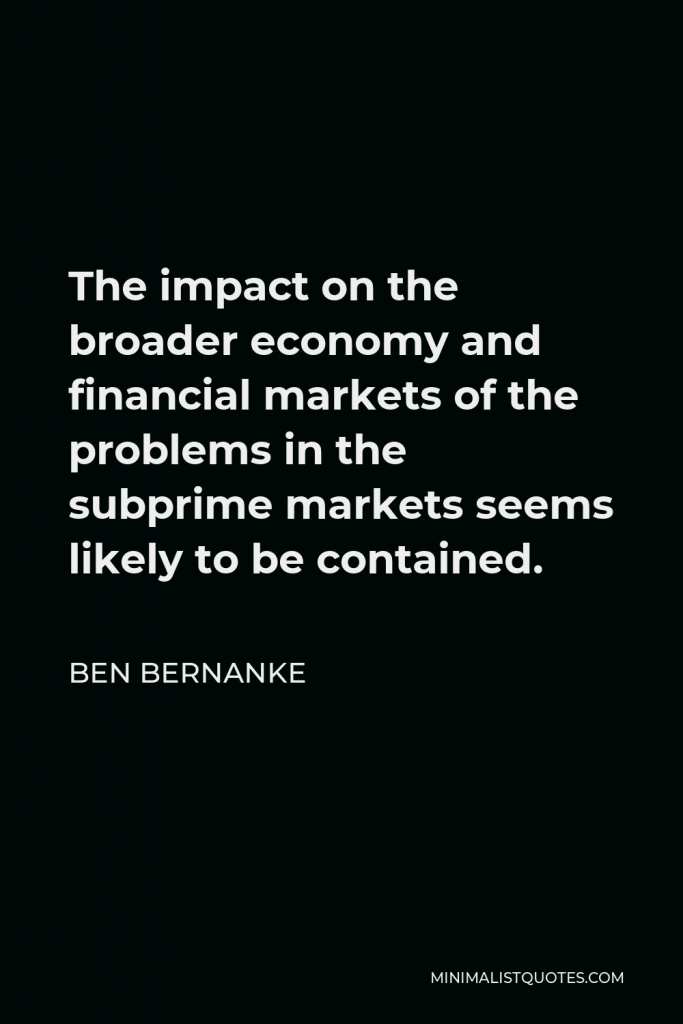

The impact on the broader economy and financial markets of the problems in the subprime markets seems likely to be contained.
BEN BERNANKE -







Investment banks manage to go bankrupt through their investment-banking activities, commercial banks manage to go bankrupt through their commercial-banking activities.
BEN BERNANKE -






A gold standard doesn’t imply stability in the prices of the goods and services that people buy every day, it implies a stability in the price of gold itself.
BEN BERNANKE -





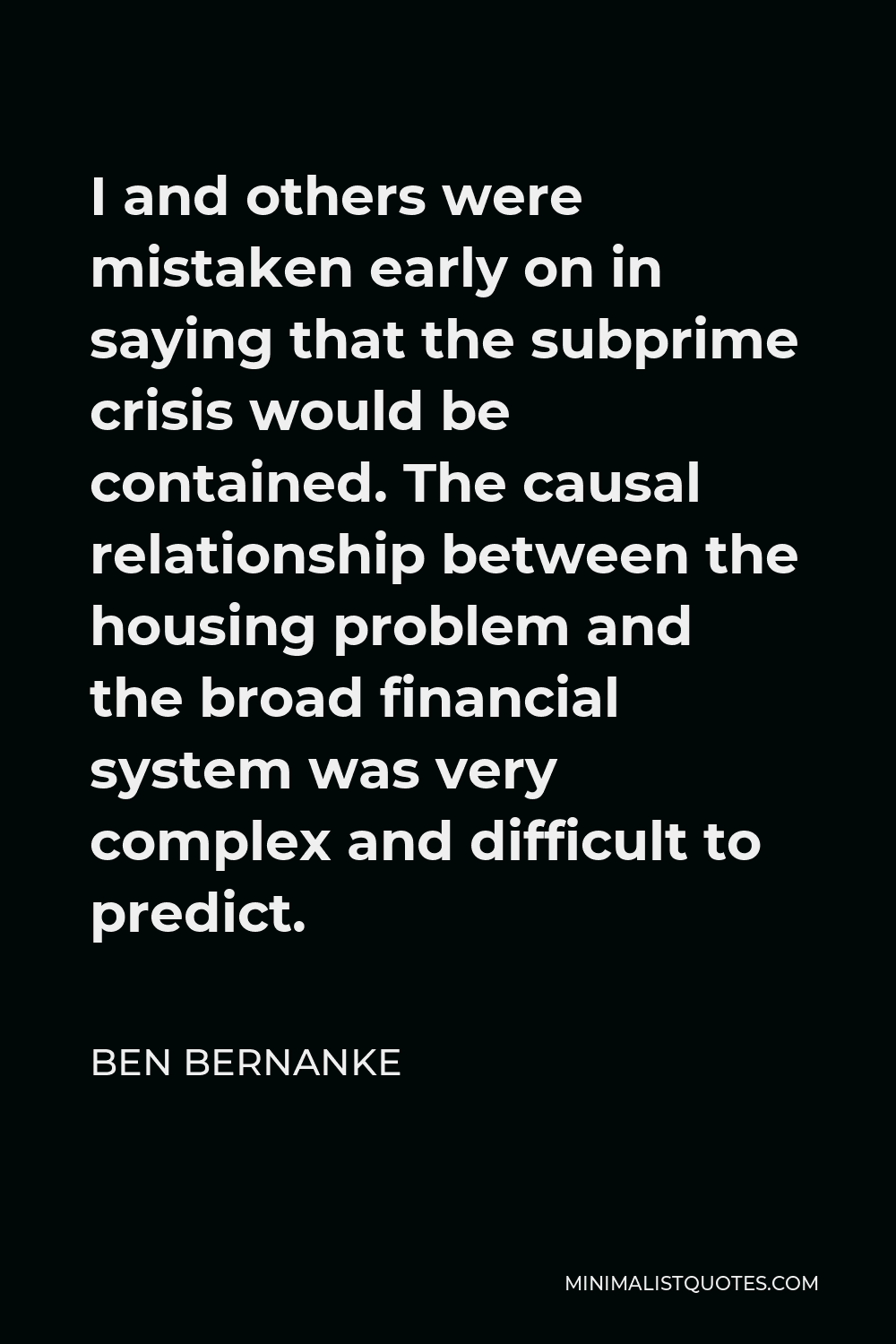
I and others were mistaken early on in saying that the subprime crisis would be contained. The causal relationship between the housing problem and the broad financial system was very complex and difficult to predict.
BEN BERNANKE -






I’d throw dollars out of helicopters if I had to, to stimulate the economy.
BEN BERNANKE -






If Wall Street crashes, does Main Street follow? Not necessarily.
BEN BERNANKE







